Tuesday’s report from the Irish Fiscal Advisory Council (IFAC) coincided with an estimate from Eurostat that Ireland’s rate of consumer price inflation has topped 8%. There was little new in the report – IFAC has been warning about risks to public finances for some time and stressed again the reliance on corporation tax. About one-fifth of all tax revenue comes from corporation tax; much of it from a handful of multinationals. Those operations include routing through Ireland taxable profits that do not arise from real economic activity here but rather from exploiting, perfectly lawfully, loopholes in the tax codes in other jurisdictions, principally the US, which permit profits to be taxed at the lower rate applicable in Ireland.
This flow of Exchequer revenue has grown rapidly and has exceeded expectations in recent years. IFAC fears that it could dry up some day and that the public finances are therefore not quite as healthy as they appear to be. It worries too about meeting upward pressure on spending to pay for climate policies and for the Slaintecare reforms in the health service, which have not been fully costed.
The damage that inflation is doing to living standards is very real – few people are seeing their incomes rise at numbers like 8% per annum. Opposition politicians have been demanding that Government somehow compensate the public and ensure that households are not worse off. There have been special measures taken, including the electricity credit, extra fuel allowances and cuts to excise duties, costing €2.4bn so far. The Government is not keen to go further – most of the inflation surge is due to higher import prices, especially for energy, and it is not possible to unilaterally cut the cost of imports.
Budget 2023 is scheduled for October. The challenge is to impose some discipline on public expectations, within the commitment to contain the rise in Government debt.
Government parties losing farmer support as Sinn Féin surges

Government parties losing among farmers
In this week's edition, Pat O’Toole looks at the systemic shift in farmer voting intentions over the past 15 years.
In 2009, 62% of farmers indicated support for Fine Gael alone. Our most recent survey – carried out among our readers in May – indicates the combined support for Fine Gael and Fianna Fáil to be less than 60%.
As far back as 2011, we saw support for independents start to erode farmer support for Fine Gael. This has been accelerated by the recent surge in support for Sinn Féin, with almost 20% of farmers now supporting the party.
The geographical and sectoral variation in farmer voting intentions is detailed by Amy Forde. The extent to which the current Government has failed to address the challenges in the low-income beef and sheep sectors appears to be influencing voting decisions.
Tuesday’s report from the Irish Fiscal Advisory Council (IFAC) coincided with an estimate from Eurostat that Ireland’s rate of consumer price inflation has topped 8%. There was little new in the report – IFAC has been warning about risks to public finances for some time and stressed again the reliance on corporation tax. About one-fifth of all tax revenue comes from corporation tax; much of it from a handful of multinationals. Those operations include routing through Ireland taxable profits that do not arise from real economic activity here but rather from exploiting, perfectly lawfully, loopholes in the tax codes in other jurisdictions, principally the US, which permit profits to be taxed at the lower rate applicable in Ireland.
This flow of Exchequer revenue has grown rapidly and has exceeded expectations in recent years. IFAC fears that it could dry up some day and that the public finances are therefore not quite as healthy as they appear to be. It worries too about meeting upward pressure on spending to pay for climate policies and for the Slaintecare reforms in the health service, which have not been fully costed.
The damage that inflation is doing to living standards is very real – few people are seeing their incomes rise at numbers like 8% per annum. Opposition politicians have been demanding that Government somehow compensate the public and ensure that households are not worse off. There have been special measures taken, including the electricity credit, extra fuel allowances and cuts to excise duties, costing €2.4bn so far. The Government is not keen to go further – most of the inflation surge is due to higher import prices, especially for energy, and it is not possible to unilaterally cut the cost of imports.
Budget 2023 is scheduled for October. The challenge is to impose some discipline on public expectations, within the commitment to contain the rise in Government debt.
Government parties losing farmer support as Sinn Féin surges

Government parties losing among farmers
In this week's edition, Pat O’Toole looks at the systemic shift in farmer voting intentions over the past 15 years.
In 2009, 62% of farmers indicated support for Fine Gael alone. Our most recent survey – carried out among our readers in May – indicates the combined support for Fine Gael and Fianna Fáil to be less than 60%.
As far back as 2011, we saw support for independents start to erode farmer support for Fine Gael. This has been accelerated by the recent surge in support for Sinn Féin, with almost 20% of farmers now supporting the party.
The geographical and sectoral variation in farmer voting intentions is detailed by Amy Forde. The extent to which the current Government has failed to address the challenges in the low-income beef and sheep sectors appears to be influencing voting decisions.




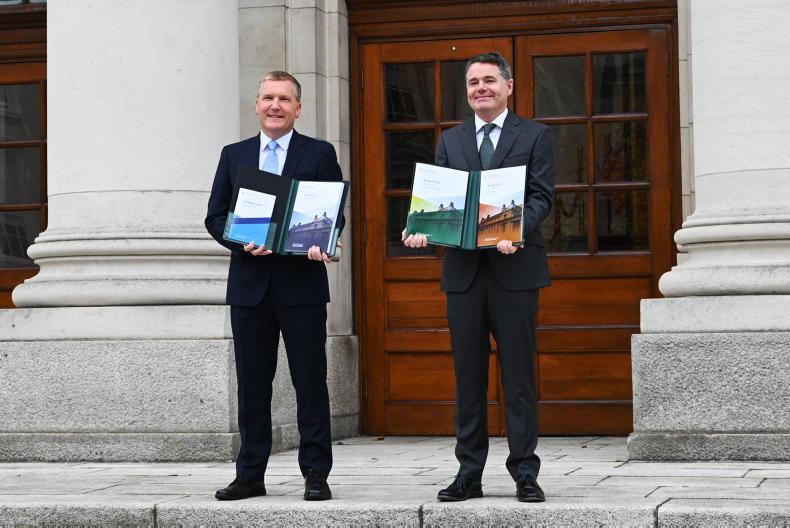
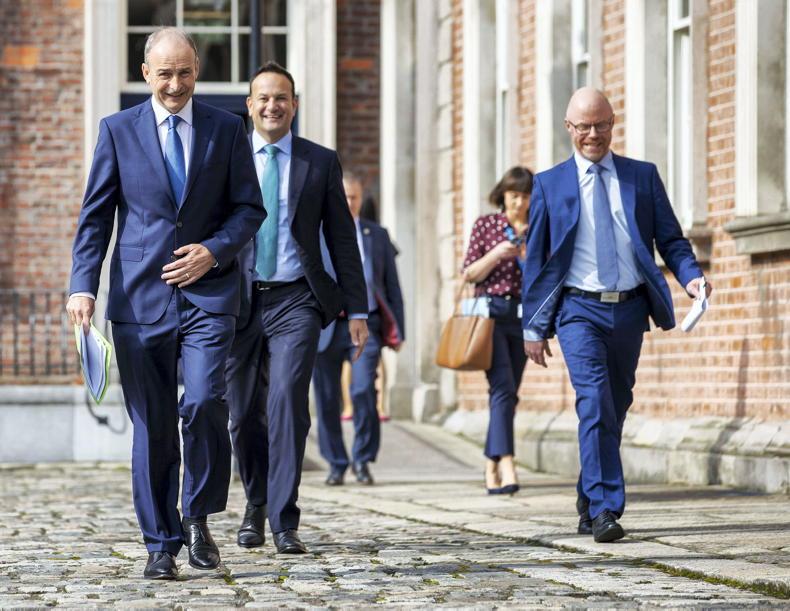

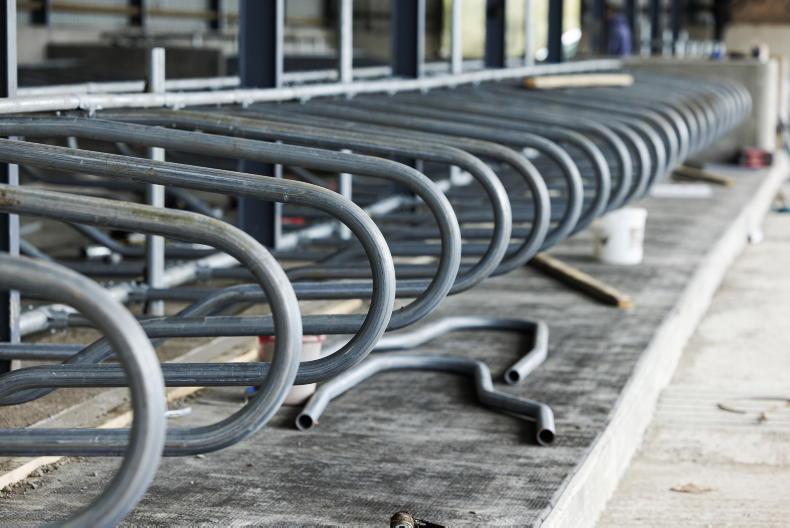

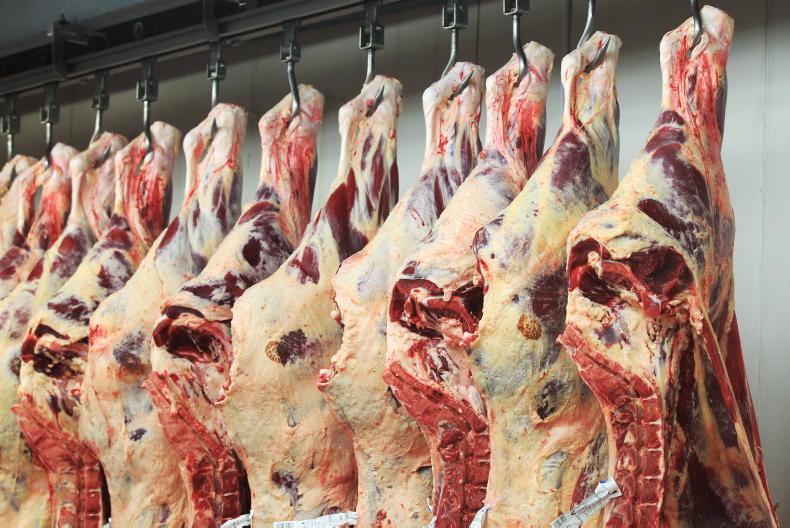
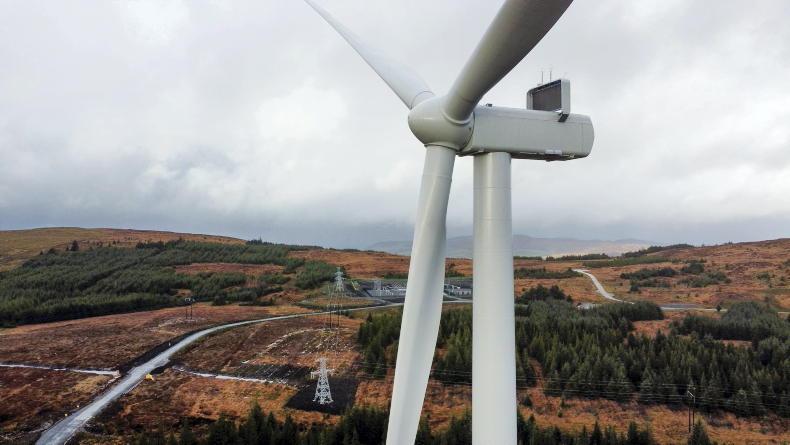

SHARING OPTIONS